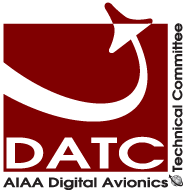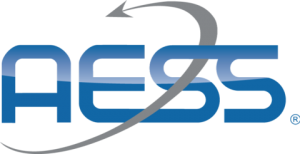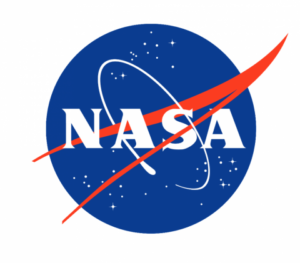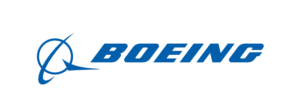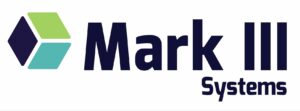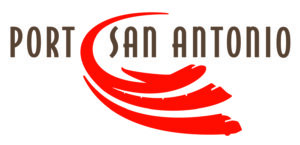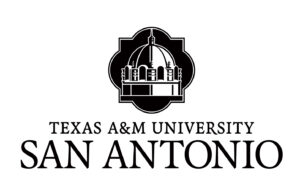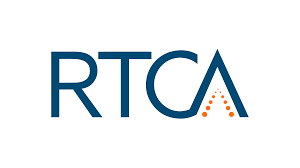Panel: Integrating Humans and Increasingly Autonomous Systems in Air Transportation
Presented By Dr. Steve Harbour, Dr. Kelly Cohen, Dr. Yulia Sandamirskaya, Dr. Chris Eliasmith, Dr. Davide Venturelli
Abstract
Sub Topics: Neuromorphic computing in Avionics, Quantum Computing, Autonomy, and Human Autonomy Teaming
Areas of Emphasis: Machine Learning in Practice, Adaptive Networks, Cognitive Assistants, Safety Assurance and Human Factors, Integration of Autonomous Vehicles, Multi-modal Interaction to support human-autonomy teaming, Security/Assurance, Single pilot and reduced crew operations, Trust in automation, Certification
Presenter(s)
 Dr. Steven D. Harbour, PhD. Principal Engineer & Scientist, Dayton Engineering Advanced Projects Lab, Avionics Division, SwRI.
SME in Artificial Intelligence / Machine Learning, Human Autonomy Teaming, Neuroscience, Electrical & Computer Engineering, Avionics, UAS and Autonomous vehicles. A senior leader, defense research & engineering professional with over 25 years of experience in multiple engineering and aviation disciplines & applications. Leads and performs ongoing basic and applied research projects, including the development of third-generation spiking neural networks (SNNs) and neuromorphic applications to include Human Autonomy Teaming. He has supported the Air Force Research Laboratory Sensors Directorate at Wright-Patterson Air Force Base, Ohio, and at the Air Force Life Cycle Management Center in the ISR / SOF directorate as the Global Hawk Chief of Avionics Engineering and Modernization Programs. USAF test pilot with over 5,000 hours total flying time in F-16, F-4, AT-38, T-37, B-52, and EC-135 aircraft. Flew the MIG-29 as part of the US State Department’s military to military visit program under the Nunn-Lugar Act. PhD in Neuroscience (Specializations: Artificial Intelligence & Machine Learning and Neuroergonomics), MS in Aerospace Engineering & Mathematics (Specializations: Avionics, Controls & Displays), BS in Electrical & Computer Engineering (Specializations: Robotics & Feedback Control Systems and Cognition). Dr. Harbour also teaches at the University of Dayton & Sinclair College.
Dr. Steven D. Harbour, PhD. Principal Engineer & Scientist, Dayton Engineering Advanced Projects Lab, Avionics Division, SwRI.
SME in Artificial Intelligence / Machine Learning, Human Autonomy Teaming, Neuroscience, Electrical & Computer Engineering, Avionics, UAS and Autonomous vehicles. A senior leader, defense research & engineering professional with over 25 years of experience in multiple engineering and aviation disciplines & applications. Leads and performs ongoing basic and applied research projects, including the development of third-generation spiking neural networks (SNNs) and neuromorphic applications to include Human Autonomy Teaming. He has supported the Air Force Research Laboratory Sensors Directorate at Wright-Patterson Air Force Base, Ohio, and at the Air Force Life Cycle Management Center in the ISR / SOF directorate as the Global Hawk Chief of Avionics Engineering and Modernization Programs. USAF test pilot with over 5,000 hours total flying time in F-16, F-4, AT-38, T-37, B-52, and EC-135 aircraft. Flew the MIG-29 as part of the US State Department’s military to military visit program under the Nunn-Lugar Act. PhD in Neuroscience (Specializations: Artificial Intelligence & Machine Learning and Neuroergonomics), MS in Aerospace Engineering & Mathematics (Specializations: Avionics, Controls & Displays), BS in Electrical & Computer Engineering (Specializations: Robotics & Feedback Control Systems and Cognition). Dr. Harbour also teaches at the University of Dayton & Sinclair College.
 Dr. Kelly Cohen, the Brian H. Rowe Endowed Chair in aerospace engineering, has been a faculty member at UC’s College of Engineering and Applied Science, or CEAS, for more than 10 years and currently serves as interim head of the Department of Aerospace Engineering and Engineering Mechanics. His career is marked by achievement in the field of aerospace engineering and education, including the UC George Barbour Award for Good Faculty-Student Relations, UC Faculty Core Values Award, UC Dolly Cohen Award for Excellence in Teaching, the American Institute of Aeronautics and Astronautics Outstanding Technical Contribution Application Award, the CEAS Distinguished Researcher Award and the Greater Cincinnati Consortium of Colleges and Universities Excellence in Teaching Award, among many others.
Dr. Kelly Cohen, the Brian H. Rowe Endowed Chair in aerospace engineering, has been a faculty member at UC’s College of Engineering and Applied Science, or CEAS, for more than 10 years and currently serves as interim head of the Department of Aerospace Engineering and Engineering Mechanics. His career is marked by achievement in the field of aerospace engineering and education, including the UC George Barbour Award for Good Faculty-Student Relations, UC Faculty Core Values Award, UC Dolly Cohen Award for Excellence in Teaching, the American Institute of Aeronautics and Astronautics Outstanding Technical Contribution Application Award, the CEAS Distinguished Researcher Award and the Greater Cincinnati Consortium of Colleges and Universities Excellence in Teaching Award, among many others.
 Dr. Yulia Sandamirskaya leads the Applications Research team of the Neuromorphic Computing Lab at Intel. Her team in Munich develops spiking neuronal network based algorithms for neuromorphic hardware to demonstrate the potential of neuromorphic computing in real-world applications, in particular in robotics. She has 15 years of research experience in the fields of neural dynamics, embodied cognition, and autonomous robotics. She led the research group “Neuromorphic Cognitive Robots” at the Institute of Neuroinformatics of the University of Zurich and ETH Zurich, Switzerland, and the “Autonomous learning” group at the Instutute for Neural Computation at the Ruhr-University Bochum (RUB), Germany. She has a Diplom in physics from the Belarussian State University and a Doctoral degree in neural computation from the RUB. She was chairing EUCog—the European Society for Artificial Cognitive Systems and coordinated an EU coordination and support action NEUROTECH, facilitating development of the neuromorphic computing technology community in Europe.
Dr. Yulia Sandamirskaya leads the Applications Research team of the Neuromorphic Computing Lab at Intel. Her team in Munich develops spiking neuronal network based algorithms for neuromorphic hardware to demonstrate the potential of neuromorphic computing in real-world applications, in particular in robotics. She has 15 years of research experience in the fields of neural dynamics, embodied cognition, and autonomous robotics. She led the research group “Neuromorphic Cognitive Robots” at the Institute of Neuroinformatics of the University of Zurich and ETH Zurich, Switzerland, and the “Autonomous learning” group at the Instutute for Neural Computation at the Ruhr-University Bochum (RUB), Germany. She has a Diplom in physics from the Belarussian State University and a Doctoral degree in neural computation from the RUB. She was chairing EUCog—the European Society for Artificial Cognitive Systems and coordinated an EU coordination and support action NEUROTECH, facilitating development of the neuromorphic computing technology community in Europe.
 Professor Chris Eliasmith is co-CEO and President of Applied Brain Research, a leading neuromorphics company. He is the co-inventor of the Neural Engineering Framework (NEF), the Nengo neural development environment, and the Semantic Pointer Architecture, all of which are dedicated to leveraging our understanding of the brain to advance AI efficiency and scale. His team has developed Spaun, the world’s largest functional brain simulation. He won the prestigious 2015 NSERC Polanyi Award for this research.
Chris has published two books, over 120 journal articles and patents, and holds the Canada Research Chair in Theoretical Neuroscience. He is jointly appointed in the Philosophy, Systems Design Engineering faculties, as well being cross-appointed to Computer Science. Chris has a Bacon-Erdos number of 8.
Professor Chris Eliasmith is co-CEO and President of Applied Brain Research, a leading neuromorphics company. He is the co-inventor of the Neural Engineering Framework (NEF), the Nengo neural development environment, and the Semantic Pointer Architecture, all of which are dedicated to leveraging our understanding of the brain to advance AI efficiency and scale. His team has developed Spaun, the world’s largest functional brain simulation. He won the prestigious 2015 NSERC Polanyi Award for this research.
Chris has published two books, over 120 journal articles and patents, and holds the Canada Research Chair in Theoretical Neuroscience. He is jointly appointed in the Philosophy, Systems Design Engineering faculties, as well being cross-appointed to Computer Science. Chris has a Bacon-Erdos number of 8.
 Davide Venturelli is Associate Director for Quantum Computing of the Research Institute of Advanced Computer Science at the Universities Space Research Association (USRA). He works since 2021 in the NASA Quantum AI Laboratory (QuAIL) under the NASA Academic Mission Service, invested in research projects dealing with quantum optimization applications and their implementation, in a hardware-software co-design approach. He teaches Quantum Optimization as an adjunct professor at Carnegie Mellon University. He is Principal Investigator or task lead in projects sponsored by DARPA (Optimization in NISQ Devices), NSF (Expeditions in Computing), and DOE (SQMS Ecosystem).
Davide Venturelli is Associate Director for Quantum Computing of the Research Institute of Advanced Computer Science at the Universities Space Research Association (USRA). He works since 2021 in the NASA Quantum AI Laboratory (QuAIL) under the NASA Academic Mission Service, invested in research projects dealing with quantum optimization applications and their implementation, in a hardware-software co-design approach. He teaches Quantum Optimization as an adjunct professor at Carnegie Mellon University. He is Principal Investigator or task lead in projects sponsored by DARPA (Optimization in NISQ Devices), NSF (Expeditions in Computing), and DOE (SQMS Ecosystem). 

